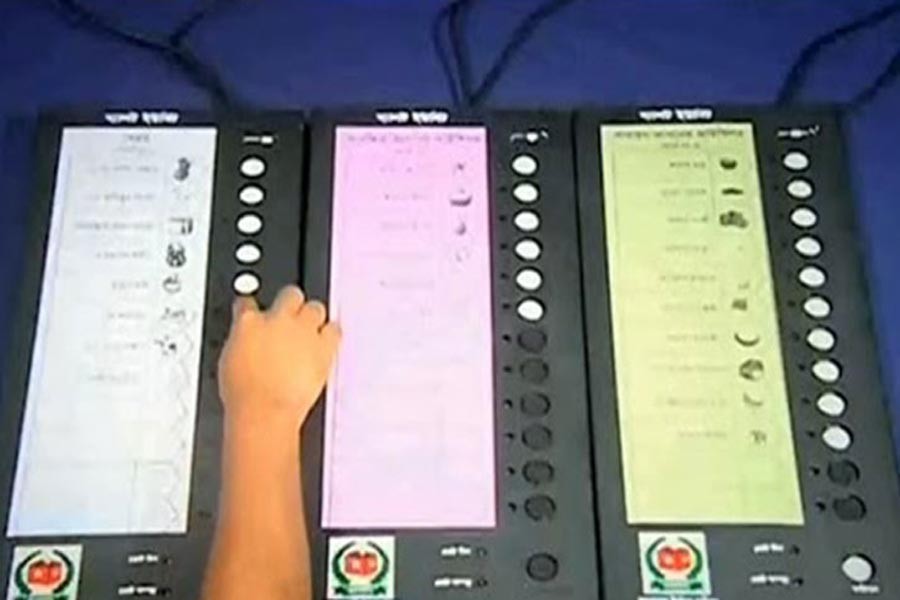Bangladesh Awami League on Sunday proposed that the Election Commission use electronic voting machines (EVM) in all the 300 constituencies in the next general election.
An AL delegation, led by its general secretary Obaidul Quader, placed a 14-point proposal joining the EC's talks at Nirbachan Bhaban in the city's Agargaon area.
"We want EVMs. We, on behalf of our party, want the EVMs in all 300 constituencies," said Quader.
AL, in its written paper placed before the EC, said there is no alternative to EVM to prevent vote-rigging. Although some voters disliked the use of EVM system at the beginning, it has been proved in the course of time that it is possible to implement a sustainable and transparent election system by stopping vote-rigging, and centre capture in a scientific manner, it added.
Terming the caretaker government system a 'past and closed chapter,' AL said the Appellate Division of the Supreme Court declared the system unconstitutional and invalid, reports UNB.
According to Article 111 of the Constitution, no other authority has jurisdiction to take any other decision in this matter. Any controversial comment on this matter is tantamount to violating the Constitution, it said.
The ruling party proposed to bring administration and law enforcement agencies and all other agencies and institutions, which are necessary for conducting the polls, under the supervision of the Election Commission during the election.
It suggested that the election-time government be limited to only routine works. "To rely on sustainable constitutional, legal and regulatory system instead of ad-hoc or interim system," AL said.
AL proposed to keep the partisan officers, who were appointed in the EC, police and civil administration during the BNP regime considering their political identity, out of the election duty to show responsible and impartial behaviour of Election Commission Secretariat and its field level officers and employees.
The party said a large number of political leaders and activists were recruited in the EC, police and civil administration who are now either in important posts or waiting for district-level responsibilities.
Other proposals include demonstrating the EC's capacity to carry out the responsibilities given in the Constitution and laws by maintaining its independence, neutrality and acceptance; carrying out the responsibilities by the ministries and agencies concerned during the polls; and appointment of responsible officers and employees of the Republic as presiding officers and polling officers instead of the staff of non-governmental organisations or institutions.
The proposals also include maintaining neutral and responsible behaviour by the members of law enforcement agencies; not allowing any person, group or organisation that are identified for its affiliated to any party or candidate as election observers; to stop the use of muscle power and illegal money as well as to ensure the scope for all voters including ones of the religious minority communities to apply their voting rights: and to ensure the overall security of the public before and after the elections.
With the talks with AL, the Election Commission concluded its dialogue with registered political parties seeking opinions over the 12th parliamentary elections.
AL leaders Amir Hossain Amu, Matia Chowdhury, Kazi Zafarullah, Muhammad Abdur Razzaque, Faruk Khan, Hasan Mahmud, Shahbuddin Chuppu, Abdus Sobhan Golap, Barrister Biplab Barua, Salim Mahmud, Shamsunnahar Chapa and Sayeem Khan were the delegation members.
Among 39 registered political parties, 28 political parties took part in the EC's dialogue, but nine didn't join the talks and the remaining two political parties sought time for this.


